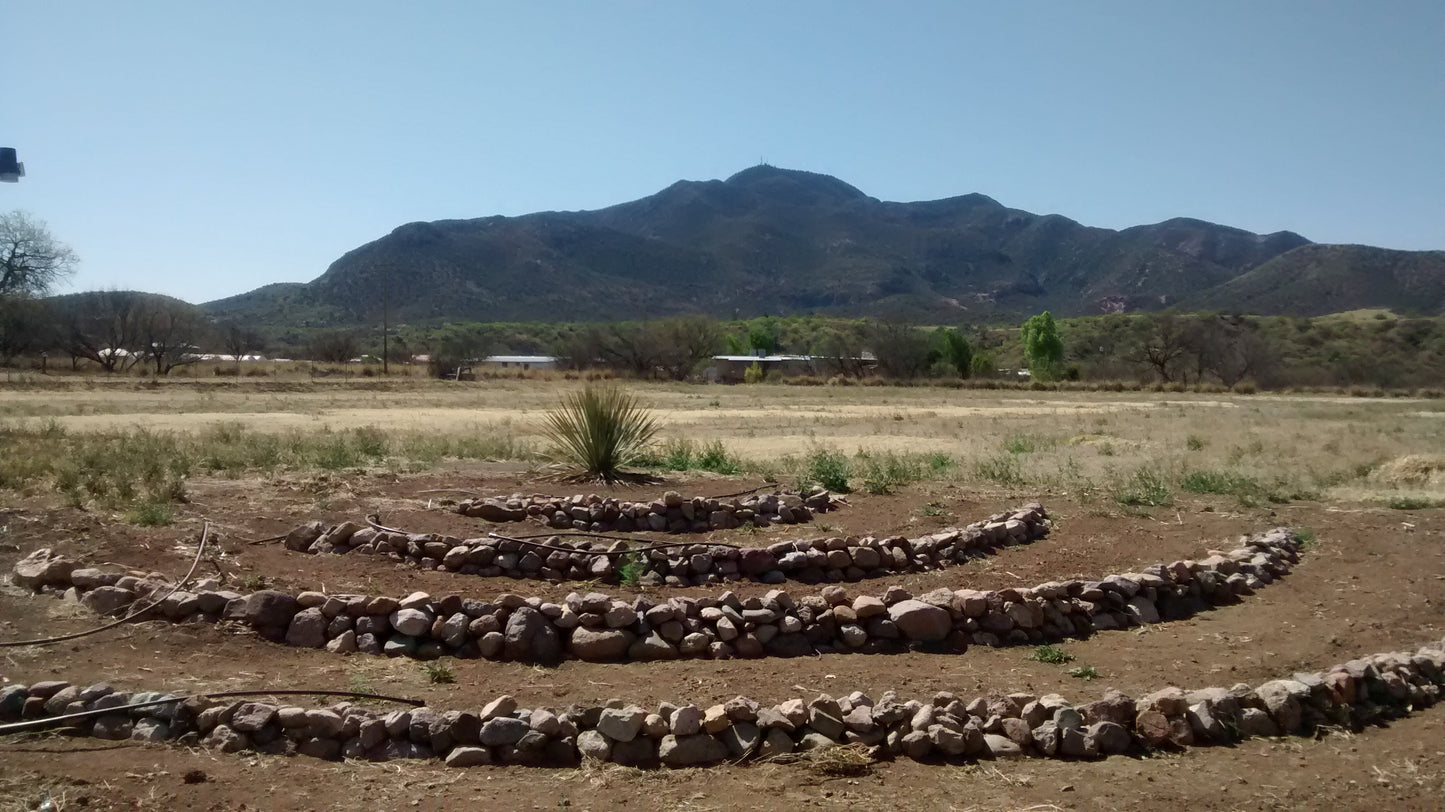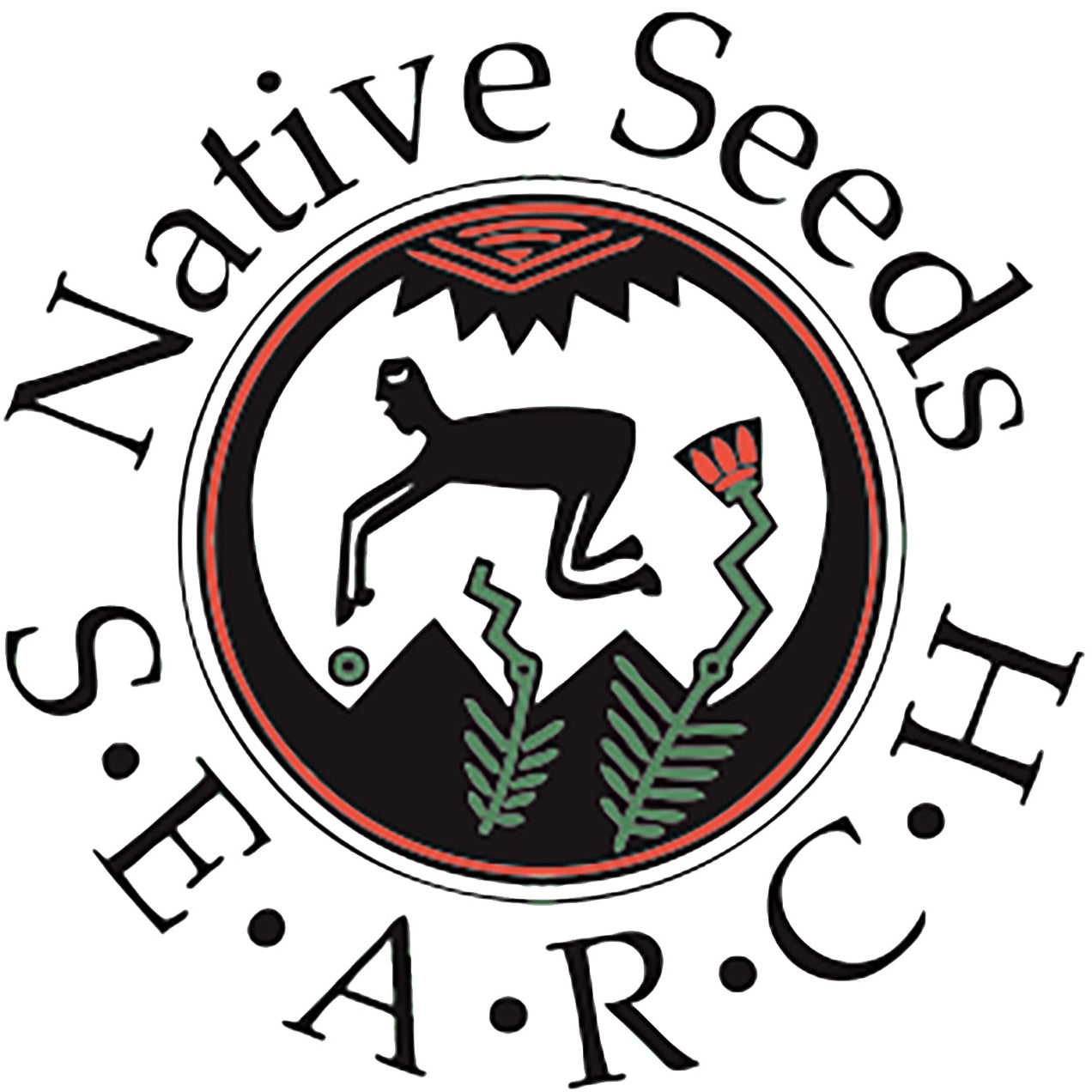
Article by Melissa Kruse-Peeples, NS/S Education Coordinator, published May 9, 2016.
As you know, at the heart of NS/S is the seed bank, where thousands of priceless, traditional crop seed varieties are protected and conserved for current and future generations. We are all indebted to the farmers and gardeners who entrusted their heritage seeds to us for safekeeping. To make sure that we have sufficient supply, we keep a close eye on the collection to determine which seeds need regeneration. Growouts occur on our 60-acre Conservation Farm in Patagonia, Arizona. Growing seeds to maintain genetic purity requires techniques including hand pollination and isolation, which are often costly and labor intensive.
Late last fall we planted over 20 varieties, including Tarahumara Espinaca, Chamisal Quelites, Swain Dill, Guatamalean Purple Fava Beans, and thirteen varieties of peas. The farm is located in Patagonia, Arizona at 4,000 feet elevation. Spring tempuratures and summer growing season arrives later than Tucson where our seed bank and Conservation Center are located. We also grew some cool season crops at the Center in Tucson and that seed has since been harvested. But with the warmer weather not arriving in Patagonia until March, these crops are still producing seeds. Harvest is underway and soon the seeds will be ready for packing and ready for you and others to plant to maintain this incredible diversity within your gardens. Although our seeds are backed up in frozen storage in the Native Seeds/SEARCH seed bank, the best way to preserve this genetic diversity is for all of us to continue growing these seeds and enjoying the food they produce. We eagerly await the day when these arid-adapted seeds are in greater supply because people like you continue to sow, harvest, save and share them.
Fields are currently being prepared for summer planting. The terrace gardens, as seen in the picture above, will soon be brimming with seed diversity. In the coming weeks we will begin planting warm season crops like Navajo Robin’s Egg Corn, Mexicali Tomatillos, Acoma Pumpkins, Yoeme Purple String Beans and more.
Enjoy these photos from the past few months of our Spring season at the Conservation Farm. If you are interested in visiting the farm, please stay tuned for tour opportunities this Fall.







